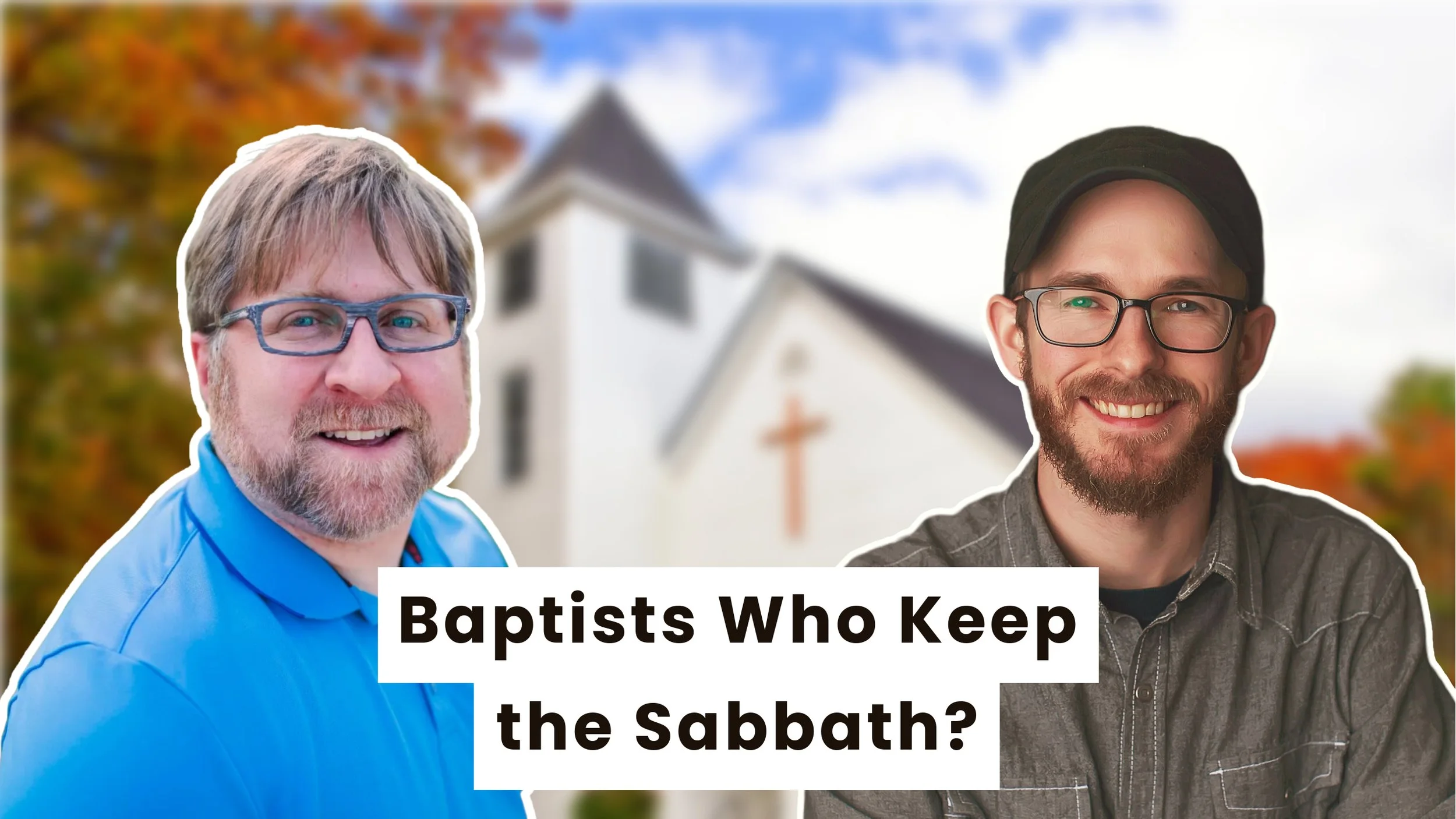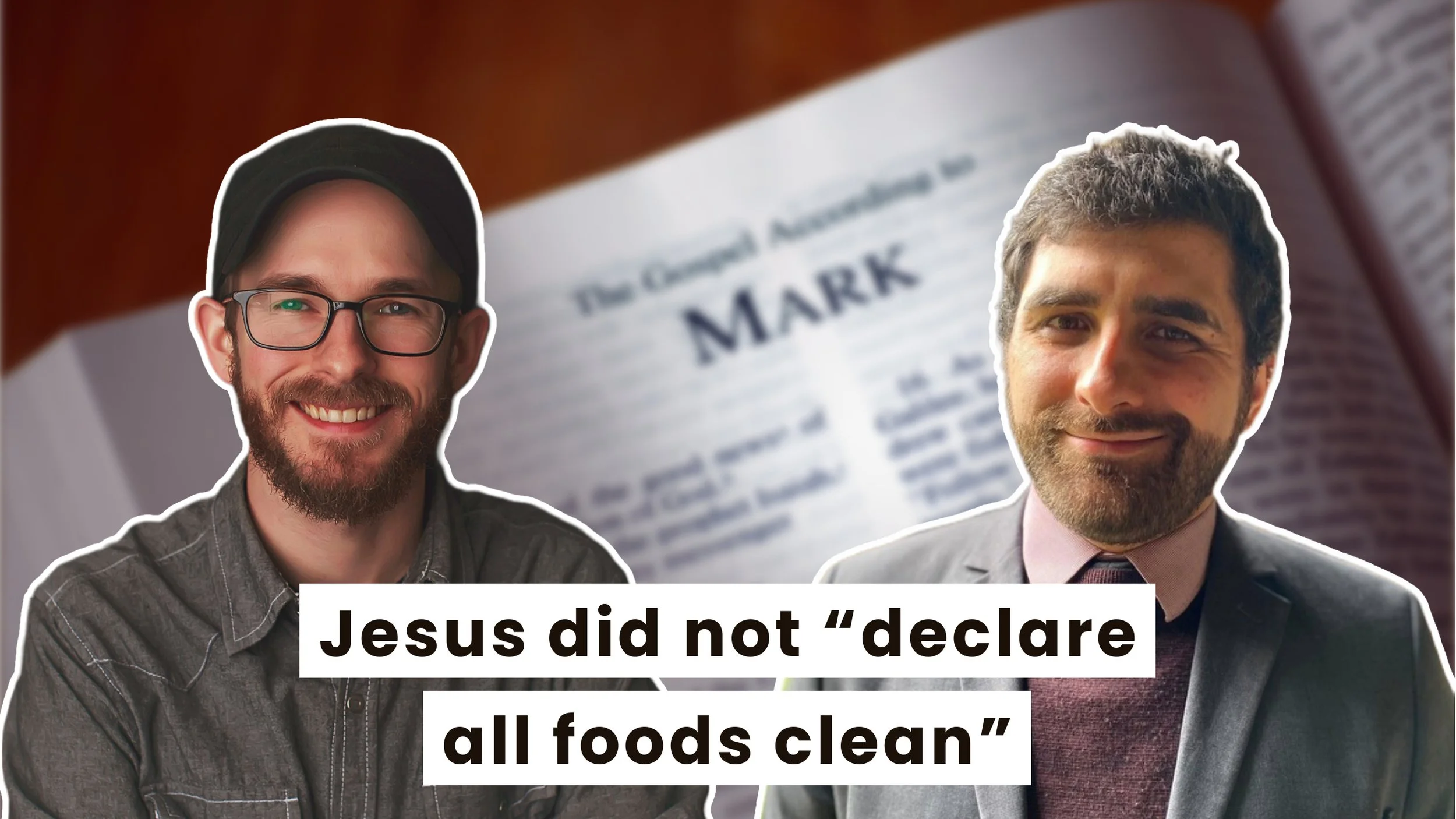How should non-Jewish believers who are drawn to Torah observance relate to the broader Messianic Jewish movement? In this video, I sit down with Messianic Jewish Rabbi Eric Tokajer to unpack his thought-provoking article, “The Fringe Group Problem.” We discuss what Messianic Judaism is, why many Gentile believers who love Torah end up in movements that are separated from the broader Messianic Jewish community, and how we can walk together instead of separately. If you’re passionate about the Torah and about unity between Jews and Gentiles in Messiah, I hope this discussion will bless and encourage you.
“You Are Elohim”: Two Views of Psalm 82 (Interview w/ Rob Vanhoff)
Psalm 82 declares, “You are gods” (elohim). Jesus quotes this passage in John 10 as he confronts the false shepherds of Israel. Yet the meaning of this Psalm is debated. Who, exactly, are the elohim or “gods” addressed in Psalm 82? In his new book, “You Are Elohim: Two Views of Psalm 82,” Rob Vanhoff surveys the major interpretations of this text and explores some of the implications. I’m excited to have him with us to talk about his book.
Are There Anti-Jewish Passages in the New Testament? (Interview w/ Dr. Igal German)
Do the New Testament writings condemn Jews and Judaism? Sadly, there are professing Christians today who claim they do. To address this error and shed light on several often-misinterpreted passages, I’m joined by Dr. Igal German, a Messianic Jewish scholar and apologist. I’m grateful to have Dr. German with us to tackle this important topic.
The Law and the Promise (Interview w/ Jonathan A. Brown)
Is the Law contrary to God’s promise? According to Paul in Galatians 3:21, the answer is no. However, many Christians interpret Paul’s letter to the Galatians in the exact opposite way. Galatians is often regarded as the definitive rejection of Torah observance for believers. But is that view biblical? That’s the subject of the new book, “The Law and the Promise: A Pronomian Pocket Guide to Galatians 3–4” by Jonathan Brown. I’m excited to have Jonathan with us to discuss his book and why we should take seriously Paul’s own answer to this question.
Jesus and the Law of Moses (Interview w/ Dr. Paul Sloan)
What if Jesus’s disputes with other teachers over the Law of Moses weren’t about criticizing legalism or external rituals? What if, as the authoritative interpreter of the Law, Jesus was actually criticizing misinterpretation and transgression? In his new book, Jesus and the Law of Moses, Dr. Paul Sloan offers a fresh perspective on how the Gospels depict Jesus’s teaching on the Law—and this perspective challenges some common assumptions about Jesus’s relationship to the Law. I’m thrilled to welcome Dr. Sloan to the channel to discuss his book.
Love and the Law: A Pronomian Reading of John 14:15 (Interview w/ Dr. Benjamin Szumskyj)
Jesus told his disciples, “If you love me, you will keep my commandments.” But what exactly did he mean his commandments? Was he referring only to the commandment to love, only to the teachings given during his earthly ministry, or also to the commandments found in the Torah (Law of Moses)? That is the subject of the new book by Dr. Benjamin Szumskyj titled Love and the Law: A Pronomian Pocket Guide to John 14:15. I’m excited to have Dr. Szumskyj with us to today discuss his book on this important verse.
Did Peter's Vision in Acts 10 Abolish God's Food Laws? (Interview w/ R. M. Bailey)
Did God revoke his food laws? Did he abolish the distinction between clean and unclean animals? Many argue that he did based on Peter’s vision in Acts chapter 10. However, recent scholarship is challenging that interpretation. In his new book, Whom God Has Made Clean: A Pronomian Pocket Guide to Acts 10:9–15, my guest, R. M. Bailey, argues that Peter’s vision isn’t about food at all. Bailey challenges popular antinomian interpretations and offers a pronomian reading that better fits both the immediate context and the broader biblical narrative. I’m excited to talk to him about this important passage.
"Nothing is Unclean"? Examining Romans 14:14 (Interview w/ Rob Vanhoff)
What did Paul mean in Romans 14:14 when he wrote, "nothing is unclean in itself"? Did he believe that the Torah's distinction between clean and unclean food had been erased? Or is he talking about something else entirely? Joining me today to discuss this is Rob Vanhoff. He is a biblical scholar, author, and instructor at TelosTorah Bible Academy. I'm excited to have Rob with us to talk about this passage.
Does the Torah Speak to the Value of the Unborn? (Interview w/ Dr. Carmen Imes)
What does the Torah say about the value of the unborn? There is an interesting law in Exodus 21:22-25 that speaks to this question. Here to discuss this with me is Dr. Carmen Imes, an Old Testament scholar, author, and Associate Professor at Biola University’s Talbot School of Theology. She’s currently working on a commentary on Exodus and brings valuable insights into this important passage. We also explore how this passage informs contemporary debates about abortion.
Sabbath-Keeping Baptists? Meet the Seventh Day Baptists (Interview w/ Nicholas J. Kersten)
It is widely acknowledged that the earliest Christians observed the seventh-day Sabbath in obedience to the Fourth Commandment. What is less often acknowledged is that there have always been Christian communities that continued to honor the seventh-day Sabbath throughout history. One such community is the Seventh Day Baptists, which emerged from the Protestant Reformation. I am excited to be speaking with Nicolas Kersten, the Director of Education and History for the Seventh Day Baptist General Conference, to learn more about this Sabbatarian Christian tradition.
Meeting Paul the Weird Apostle (Interview w/ Ryan Lambert)
Should we make Paul "weird" again? My guest Ryan Lambert argues that we should. But what does that mean? In his new book, "The Weird Apostle," Ryan invites us to rediscover the historical Paul, a faithful Torah observant Jew. While this picture of Paul might feel "weird" from a modern Western standpoint, it offers a more accurate understanding of who Paul really was. I'm excited to have Ryan with us to discuss his book.
Developing Biblical Friendships | Pronomian Scholarship (Interview w/ Dr. Benjamin Szumskyj
Are our friendships important to God? How do we build deep, meaningful friendships rooted in faith and Scripture? I’m excited to explore these questions today with Dr. Benjamin Szumskyj. In his recent book, Dr. Szumskyj reflects on how we can cultivate godly friendships, drawing inspiration from the bond between David and Jonathan in Scripture. He also shares his perspective on Pronomian (pro-Law/Torah) theology, and his experience advocating for this this view within the academic world. I hope you’re blessed by the discussion.
How the Biblical Festivals Point to the Messiah (Interview w/ Jon Horton)
What are the biblical festivals, and how are they relevant to Christians today? How do holidays like Passover, Pentecost, and Tabernacles point to the Messiah Yeshua (Jesus) and his work of redemption? My guest today is Jon Horton, a Messianic believer and podcaster who has been studying these festivals and their significance. I’m excited to have him with us to discuss this topic.
Understanding Hebrews: A Post-Supersessionist Approach (Interview w/ D. Thomas Lancaster)
Does the Epistle to the Hebrews teach supersessionism? Does the author suggest that the Messiah’s priesthood and sacrifice have replaced the Levitical Priesthood and animal sacrifices? Traditionally, many have argued yes, citing passages that mention a “change” in the law and that describe the first covenant as becoming obsolete. However, a growing number of scholars are challenging the supersessionist readings of those passages. My guest today, D. Thomas Lancaster, has recently authored a commentary arguing for a post-supersessionist approach to Hebrews. I’m excited to have him with us to explore this perspective on the Epistle to the Hebrews.
James, Paul, and the the Law of Moses in Acts 21:20-26 (Interview w/ Dr. G. Scott McKenzie)
Did the apostle Paul teach believers to abandon the Law of Moses? In Acts 21, we see a rumor circulating that he did, which prompts James to propose a plan for Paul to debunk this rumor and set the record straight. What does this passage reveal about Paul’s stance on the Law of Moses? My guest, Dr. G. Scott McKenzie, explores these questions in his recent book, “Walking Orderly, Keeping the Law.” In his book, Dr. McKenzie examines Acts 21 and critiques traditional antinomian interpretations that seek to deny its clear pronomian implications. I’m excited to have Dr. McKenzie with us to discuss his work, and I hope this interview blesses you.
The Old Testament Law for Christians (Interview w/ Dr. Richard Averbeck)
Is the Old Testament Law—the Torah—relevant to Christians today? My guest, Dr. Richard Averbeck, says that it is. In his recent book, The Old Testament Law for the Life of the Church, Dr. Averbeck makes the case that the Law of Moses remains in effect for Christians today. I’m excited to have him with us to discuss his book.
Did Jesus Invalidate the Torah’s Food Laws in Mark 7:1-23? (Interview w/ Dr. Logan Williams)
Did Jesus abolish the distinction between permitted (clean) and prohibited (unclean) food in the Torah? Many say that he did based on his interaction with the Pharisees in Mark 7:1-23. However, Dr. Logan Williams challenges this antinomian reading of Mark 7:1-23 and offers a more plausible interpretation.
Pro-Torah Scholarship and First-Century Meal Customs (Interview w/ Caleb Hegg)
Join me as I sit down with Caleb Hegg from TorahResource to discuss the important work TorahResource is doing to offer solid, pro-Torah scholarship for the Body of Messiah. We also explore the fascinating world of Greco-Roman meal customs and how this historical context can bring new understanding to New Testament passages about communal meals in the early church.





















